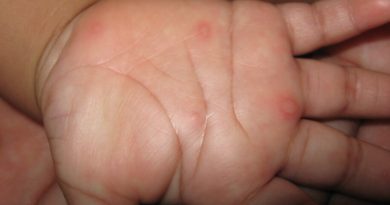Researchers find that hunger hormones offer promising avenue for addiction treatment
Hormones that signal the body’s state of hunger and fullness could be the key to new treatments for drug and alcohol addiction. That is the consensus of an expert panel convened this week at the annual meeting of the Society for the Study Ingestive Behavior, the leading international research conference on food and fluid intake. Gut hormones have received considerable attention from scientists seeking to understand overeating and obesity, which led the panelists to discover that those hormones are also involved in addiction. They expressed optimism about the potential for rapid progress toward new addiction treatments, since several drugs that affect these hormones are already approved or in the FDA pipeline.
“Hormones from the gut act in the brain to modulate dopamine signaling, which controls decisions to seek out rewards,” explained Dr. Mitchell Roitman, University of Illinois-Chicago neuroscientist. That explains how food and water become more or less rewarding based on a person’s state of hunger, fullness, or thirst. Since drugs like cocaine and alcohol act on those same dopamine circuits in the brain, gut hormones could potentially turn their rewarding effects up or down in the same fashion.
Ghrelin, a hunger hormone released by the stomach, can influence the reward value of alcohol much like it increases the reward value of food, according to new data shared by panelist Dr. Lorenzo Leggio, leader of a joint team from the National Institute on Alcohol Abuse and Alcoholism (NIAAA) and the National Institute on Drug Abuse (NIDA). The NIAAA/NIDA team has demonstrated that ghrelin promotes alcohol seeking in people with alcohol use disorder. More recently, they have also studied rats genetically insensitive to ghrelin, an approach that further supports a role of the ghrelin system in alcohol seeking.
Other gut hormones like GLP-1 and amylin are released during eating to tell the brain when a person has had enough. In animal studies reported by several of the panelists, medications that enhance the action of those hormones reduce the rewarding effects of drugs and alcohol. In one study led by Dr. Elisabet Jerlhag of the University of Gothenberg in Sweden, treating rats with a compound that mimics amylin significantly reduced alcohol-seeking, even in rats selectively bred for excess alcohol consumption. Dr. Heath Schmidt of the University of Pennsylvania’s Perelman Medical School, reported similar effects of GLP-1 analogs in reducing rats’ cocaine seeking.
All members of the panel were optimistic about the potential for new therapies to help people battling addiction. “These results provide strong rationale for clinical trials of GLP-1 analogs for people seeking addiction treatment,” said Schmidt. “Medications affecting GLP-1 and amylin are already FDA approved for Type II diabetes and obesity. These drugs could be re-purposed for treating drug craving and relapse.”
Source: Read Full Article



